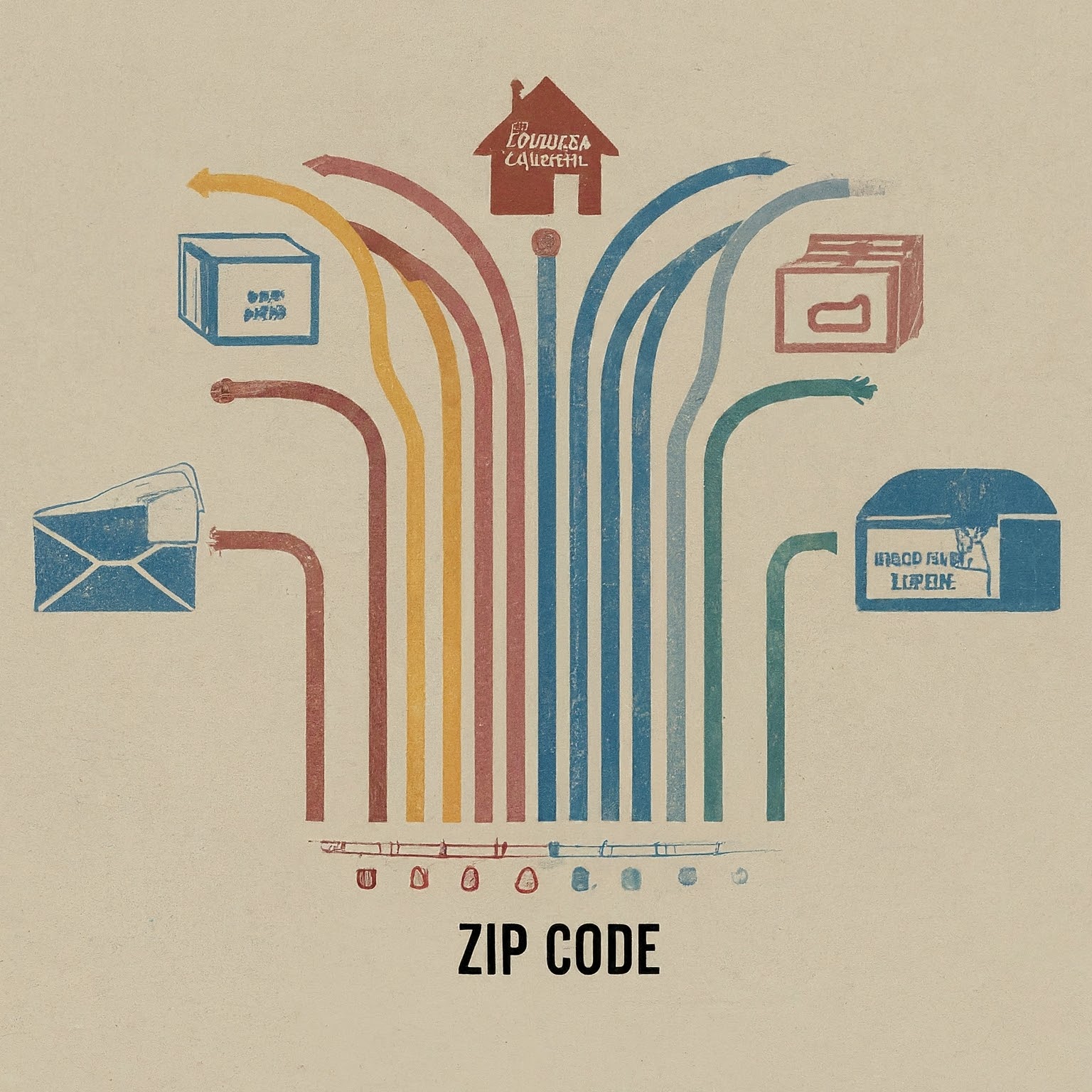The unassuming zip code, a string of five digits tacked onto the end of your address, plays a vital role in the behind-the-scenes world of mail delivery. But beyond its basic function, the zip code holds a surprising amount of history and complexity.

From Zone Improvement to Modern Marvel
Born in 1963 as the “Zone Improvement Plan,” the zip code aimed to streamline mail sorting and delivery for the ever-expanding US Postal Service (USPS). Initially a five-digit system, it was later extended to include a four-digit add-on, ZIP+4, for even more precise targeting.
A Geographical Jigsaw Puzzle
Each zip code acts like a unique geographic identifier. It can pinpoint a specific neighborhood, a sprawling rural area, or even a large commercial building. This intricate network allows the USPS to efficiently sort and deliver millions of pieces of mail daily.
Beyond Mailboxes: A Wealth of Data
Zip codes are more than just delivery codes. They can be used to unlock a treasure trove of demographic data. By analyzing zip codes, businesses can target advertising campaigns, sociologists can study population trends, and economists can gauge economic activity in different regions.
The Future of the Zip Code
In the age of digital communication, some might question the continued relevance of the zip code. However, the physical delivery of mail remains crucial, and zip codes continue to play a central role. Additionally, with the rise of e-commerce, zip codes are becoming even more important for accurate package delivery.
Unlocking Your Zip Code’s Secrets
Curious to learn more about your own zip code? The USPS offers a handy zip code lookup tool that allows you to enter an address and find the corresponding zip code. You can also use this tool to find all the zip codes associated with a particular city and state.
So, the next time you write your address, remember that the unassuming zip code is more than just a delivery number. It’s a testament to human ingenuity, a cornerstone of the mail system, and a valuable source of data for understanding our world.